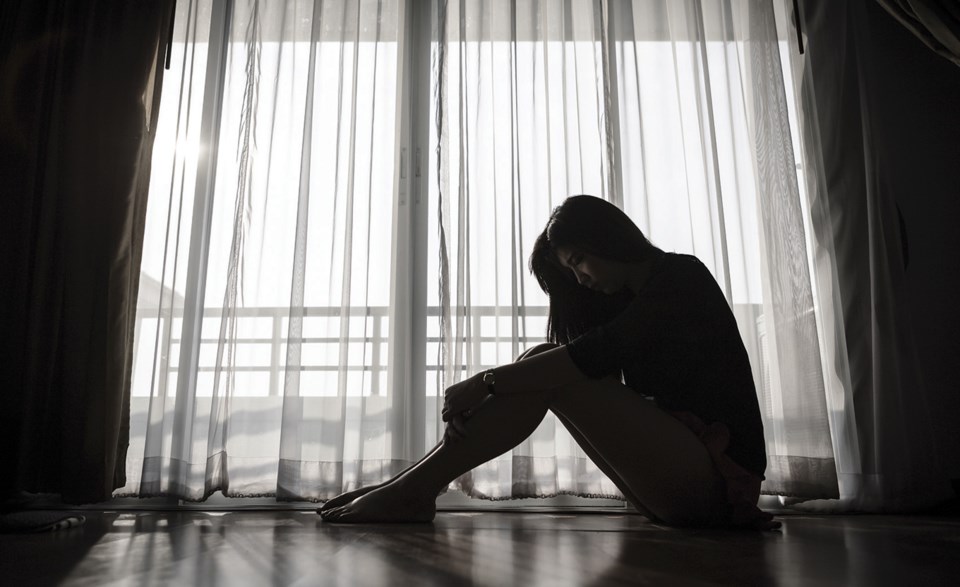The story of Syd Valentine’s last day touched the hearts of many of our readers.
Two years ago, Ms. Valentine ended her life at a friend’s home in Roberts Creek, surrounded by loved ones as she prepared for and underwent a medically assisted death at age 59.
Syd Valentine’s case was straightforward – her cancer was spreading and a painful combination of chemotherapy and blood transfusions could only extend her life a short time. Her decision to exit when she did was brave and wise.
The same can be said for Gibsons resident and longtime activist Judy Lynne, who earlier this month opted for Medical Assistance in Dying (MAID) after a two-year struggle with cancer.
Thousands of Canadians have made that choice since assisted dying became legal in June 2016 – more than 600 in the Vancouver Coastal Health region alone – and the numbers have been going up steadily. Now the federal government is looking at extending access to people whose situations are not nearly as open and shut.
In last week’s editorial, I pointed out that even the experts from the Council of Canadian Academies who prepared a series of reports for the government were sharply divided over the pros and cons of sanctioning euthanasia for three groups under consideration: mature minors, people who want to request it in advance once a specified condition is reached, and people suffering solely from a mental disorder (the term they use for mental illness).
Mercy
Mature minors are defined as children and adolescents with the capacity to provide informed consent. The CCA summary notes that in the Netherlands and Belgium, where the practice is allowed, it is extremely rare. Of about 60,000 cases of euthanasia performed in the Netherlands between 2002 and August 2018, 13 involved minors. Eleven were between 16 and 18 years old, one was 14 and one was 12. All of them had terminal cancer. Their parents supported the decision in all cases, though parental consent is required only for patients up to age 16.
Heartbreaking as it is to contemplate, these appear to have been acts of genuine mercy, ending the suffering of young people who felt they had endured enough.
Yet the vulnerability of minors raises serious concerns. “One unintended consequence,” the summary warns, “might be that some terminally ill minors may feel pressure to request MAID as a means of protecting their families from continued financial and/or emotional distress.” Another concern is that it might normalize suicide among youth.
Disturbingly, the CCA working group offers up more arguments against including parental consent as a safeguard than in support of it.
To date, there have been no cases in Canada of minors requesting assisted dying.
Murder
For advance requests, it’s the long-term directives that have the most terrifying potential. In a separate summary report, the CCA’s experts list possible criteria that a patient might set to trigger MAID: being bedridden, not recognizing family members, difficulty breathing, experiencing pain. The lived experience, however, might be entirely different. What if, the summary asks, the person “expresses a desire to continue living, or physically or verbally resists” termination?
The primary risk, they conclude, is “that a person will receive an assisted death against their wishes.” Strip out the Orwellian phrasing and what they’re describing is a risk that people who want to live will be killed, an act some would classify as murder. But it will all be legal because it will be in writing and Canadian case law has established “the priority of written instruction directives over best interests.”
No wonder the summary stresses that an advance MAID request would place “an enormous responsibility” on the third party who has to carry it out – perhaps, I would add, under intense pressure from facility administrators who are loudly insisting that the bed is already taken.
Suicide
By far the biggest disagreements were among the working group members tasked with studying the issue of access to euthanasia for people who suffer only from mental illness.
“A particular challenge,” the group wrote in a typically mind-numbing passage, “is that their desire to die could be a symptom of their mental disorder.”
For professionals treating mental illness, adding euthanasia to the mix would be fraught with anxiety. Because natural death is not “reasonably foreseeable” (in fact could be 60 years away), there would be “less certainty about how a person’s mental disorder will evolve over time and whether treatments would be successful.” And while clinicians know that some cases are irremediable and “can produce enduring and intolerable suffering,” how would they know with confidence which ones?
Assessing the patient’s capacity is another hurdle. As a result, allowing MAID for mental disorders “may lead to risks of both over-inclusion and under-inclusion.”
Who in this category would access MAID? Based on the Low Countries’ experience, people with depression are the largest group. Other conditions include personality disorders, schizophrenia, anxiety disorders (like PTSD), eating disorders, autism, and grief disorder. More than twice as many women as men receive psychiatric euthanasia. Even in those “advanced” countries, the practice is controversial.
In these cases there is no escaping the direct link with suicide, but working group members disagreed about whether making mental illness eligible for MAID “would potentially be incompatible with the current approach to suicide in Canada.”
One Minute to Midnight
The working groups do not make recommendations, and the repeated arguments and counter-arguments in their findings have the effect of cancelling each other out, giving the government a free hand to change the MAID law to suit its agenda.
The online survey at justice.gc.ca closes on Monday, Jan. 27 at one minute to midnight.
Filling it out, I marked almost every proposed safeguard as “very important.” I am all for mercy and peaceful endings if endings are inevitable, but the worst thing we could do is entrust a flawed system with the power to make death too damn easy.



